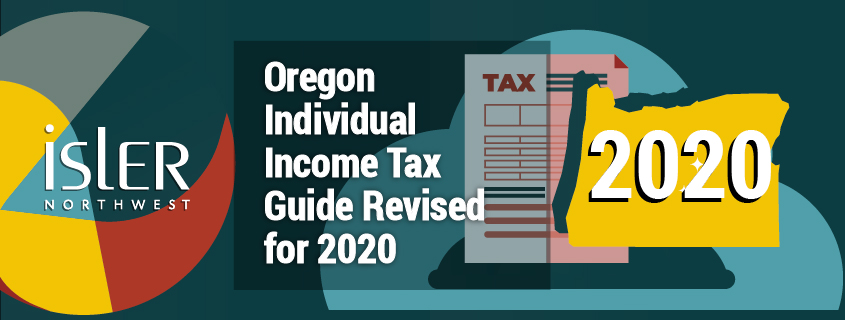From Thomson Reuters | by Margaret Eisler, Esq.
The Oregon Department of Revenue has revised Publication OR-17, Individual Income Tax Guide, for 2020. The publication supplements the Oregon income tax instruction booklet and the IRS Tax Guide: Publication 17, Your Federal Income Tax For Individuals. ( 2020 Oregon Publication OR-17, Individual Income Tax Guide, 11/12/2020 .)
Tax year 2020 due date. 2020 Oregon individual income tax is due April 15, 2021.
IRC conformity. Oregon has a rolling tie to changes made to the definition of federal taxable income, with the following exceptions. IRC § 139A tax exemption for federal subsidies for employer prescription drug plans: taxpayers who have this type of business income will have an addition on their Oregon return. IRC § 529 tax exemption for earnings on college savings plan funds used for K-12 tuition: Oregon College & MFS 529 Savings Plans may be used for higher education expenses only; if contributions on which a taxpayer based a subtraction or credit are withdrawn and used for K-12 tuition, the taxpayer will have an addition or credit recapture on their Oregon return for the withdrawal year. IRC § 199A deduction for noncorporate qualified business income (QBID): Oregon is disconnected from the QBID and so this deduction does not flow through to the Oregon personal income tax return and there is no addition to report; however, the deduction must be added back on fiduciary returns.
For all other purposes, Oregon is tied to federal income tax laws as amended and in effect on December 31, 2018.
Publication updates. Information noted as new in 2020 Oregon Publication OR-17 includes the following:
- Earned income credit (EIC): The Oregon EIC is 12% of the federal earned income tax credit (EITC) for taxpayers with a qualifying dependent under age 3 at the end of the tax year, and 9% of the federal EITC for all other qualified taxpayers.
- Presidentially-declared disasters: Taxpayers affected by a presidentially-declared disaster during 2020, must check the “Federal disaster relief” box on their Oregon return.
- Disaster relief-underpayment interest: Taxpayers who were unable to make one or more estimated tax payments on time due to a presidentially-declared disaster or other unusual circumstances will not be charged underpayment interest on those installments.
- Special Oregon medical subtraction: Taxpayers may qualify for the special Oregon medical subtraction if the taxpayer or their spouse turned 66 by the end of the tax year; their federal AGI doesn’t exceed $200,000 ($100,000 if single or married filing separately); and the taxpayer or their spouse have qualifying medical or dental expenses. Medical or dental expenses qualify if they can be included in itemized deductions. Expenses cannot be subtracted for anyone under age 66, for dependents (regardless of their age) or that are deducted elsewhere on the return.
- Federal tax liability subtraction: Oregon allows a subtraction for a taxpayer’s current year’s federal income tax liability after credits. The subtraction for 2020 is limited to $6,950 ($3,475 if married filing separately).The subtraction may be limited further based on AGI.
- Short-line railroad credit: A transferable tax credit is allowed for short line railroads that pay or incur costs for rehabilitation projects in Oregon. The project costs must be directly related to the work necessary to maintain, reconstruct, or replace tracks, switches, sidings, roadbeds, railroad bridges, or industrial leads owned or leased in Oregon. The credit amount depends on whether the short line railroad is in Tier I or Tier II, and is the smaller of: $1,000 (Tier I) or $3,500 (Tier II) times the number of miles of track owned or leased in Oregon on the day the project is completed; or 50% of the rehabilitation project costs paid or incurred by the taxpayer during the tax year in which the credit is claimed.
- Credits for Oregon 529 College Savings Network and ABLE account contributions: A tax credit of up to $150 ($300 if married filing jointly) is available for taxpayers who make contributions to an Oregon 529 College Savings Network account or an Oregon Achieving a Better Life Experience (ABLE) account. Contributions must make during tax years beginning on or after January 1, 2020 to qualify. For tax year 2020, contributions may be made up until the date the return is filed or April 15, 2021 (calendar-year filers) or the 15th day of the fourth month after the end of the tax year (fiscal-year filers), whichever is earlier. Excess contributions made in tax years beginning before January 1, 2020 may be carried forward and subtracted for up to 4 years, subject to annual limitations.
- Political contributions credit: The AGI limit for claiming the political contributions credit has been lowered to $150,000 for married taxpayers filing a joint return and $75,000 for all others.
Publication contents. 2020 Oregon Publication OR-17 provides general information and addresses the following topics: income, adjustments, additions, subtractions, other items, credits, estimated tax, return filing, payments and refunds, amended returns, interest and penalties, and audits and appeals.
© 2020 Thomson Reuters/Tax & Accounting. All Rights Reserved.
If you have questions regarding tax preparation or the Oregon Individual Income Tax, please contact us at the number below. Isler Northwest LLC is a firm of business advisors and CPA’s in Portland, Oregon. Our local, regional, and global resources, our expertise, and our emphasis on innovative solutions and continuity create value for our clients. Our service goal at Isler Northwest is to earn our clients’ trust as their primary business and financial advisor.
Isler Northwest
1300 SW 5th Avenue
Suite 2900
Portland, Oregon 97201



